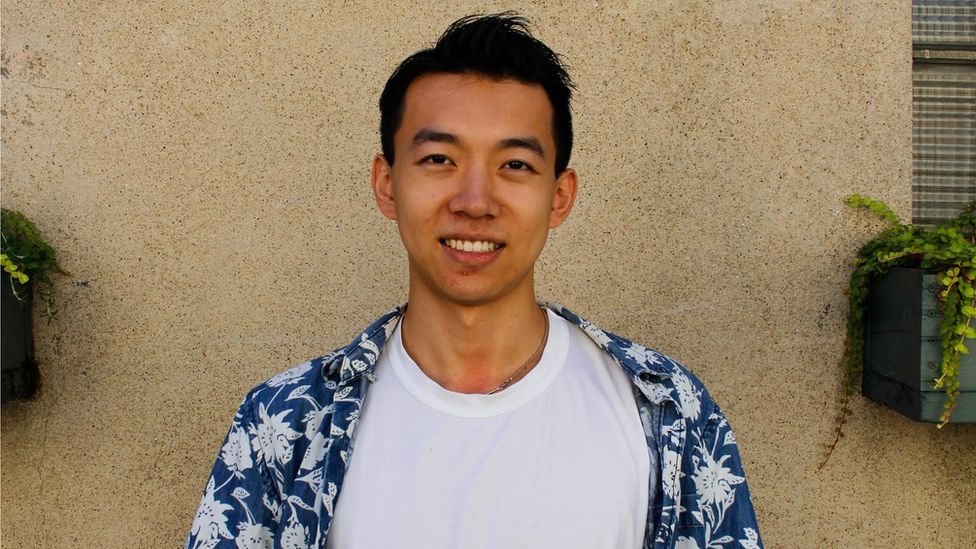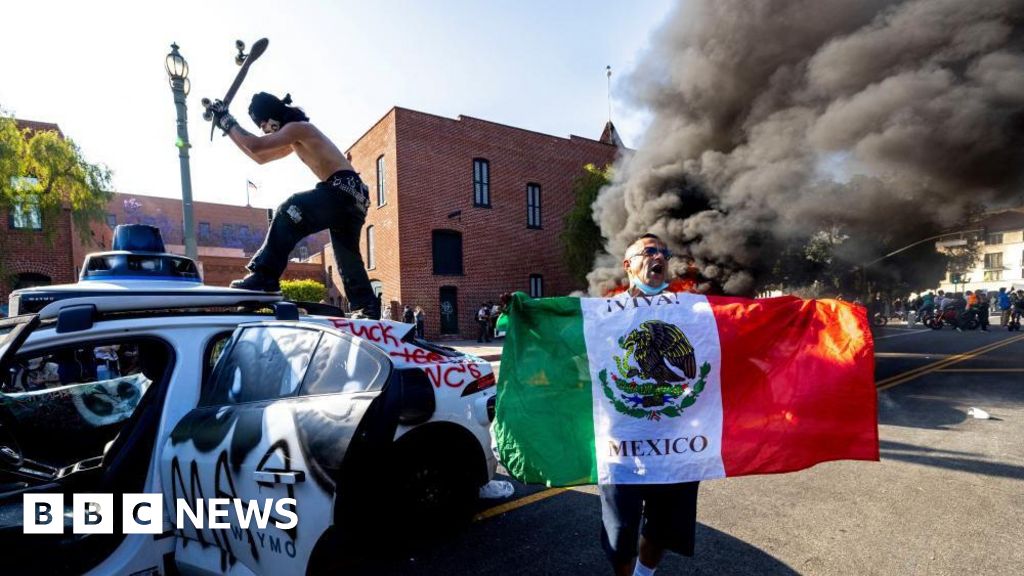ARTICLE AD BOX
 Image source, Leon Yang
Image source, Leon Yang
Leon Yang says the US needs to update its immigration policies if it wants people like him to stay.
By Sam Cabral and Nadine Yousif
BBC News, Washington and Toronto
When Leon Yang was 16, he moved by himself from Xi'An, China to the US, to study in a country where he believed that, if he worked hard every day, he could get where he wanted.
Fascinated by airplanes and everything else that flies in the air, he developed a passion for aerospace that took him from high school in Greenville, South Carolina to New York University (NYU).
With a mechanical engineering degree under his belt, he is now responsible for the soil compactor line at a construction equipment company in Atlanta, Georgia.
But nine years on from his life-altering decision, he has lost faith that he is still competing on a level playing field.
"For the past three years, I've had recruiters from major companies reach out to me, 10 to 20 a week," he claims.
As soon as they find out he is on a visa in the H1-B specialty occupation category, however, "most of them walk away", he said.
The H1-B allows foreign-born, US-educated individuals to work in the country for three to six years, but requires sponsorship by an employer and often provides no meaningful path to permanent residency.
The measure, a temporary effort to attract skilled and high-tech US workers to the country, only opened on Monday morning. By Tuesday, it had already reached its initial cap of 10,000 applicants.
Image source, Vaughn Ridley/Collision via Sportsfile
Image caption,Canada's immigration minister Sean Fraser announced the new work permit programme in June.
The burst of applications is a sign of mounting frustrations among skilled workers in the US who feel trapped in the limbo of a legal immigration system that they see as outdated and unfriendly.
When his visa expires, Mr Yang says he will have few options. He fully intends to move to Canada if he is accepted by the programme.
"I will be treated not equal, but fair compared to other competitors in the job market and that's one of the things I've missed so much in the past three years," he told the BBC.
Mr Yang is hardly alone in feeling that way. Thousands of skilled foreign nationals either fail to make the cut for the H1-B visa or, when chosen, spend years waiting for a chance at the permanent residency green card.
Demand for the visa category "massively" outstrips supply, said Madeline Zavodny, a University of North Florida economics professor who studies immigration and the future of the US labour market.
When it was established by the US Congress in the year 1990, only 65,000 foreign nationals could apply for the visa each year.
That limit has since been raised only once - to 85,000 - which Ms Zavodny says is "way too small".
"Employer demand has risen, immigration has become much more common and the US workforce hasn't grown enough to keep up with employer demand," she said.
The crush of applicants also prompted US immigration authorities in 2014 to switch from a first-come, first-serve process to a randomised lottery system.
The result, according to Ms Zavodny, is that the US is losing graduates of its own universities who want to stay but are forced to return to their home countries or go elsewhere for employment.
"The impressive thing about Canada is how nimble and flexible they are," she said. "They are constantly innovating their immigration policies, while the US has not for decades."
It remains to be seen whether Canada will extend the cap for its work permit programme or seek to make it permanent.
But a spokesperson for its ministry of immigration told the BBC it believed there were likely more than 400,000 eligible applicants at any given time.
"This temporary policy is intended to facilitate career development and mobility for tech workers, expanding the range of opportunities available for skilled workers to advance their career in the North American tech sector," communications advisor Julie Lafortune said.
"The immense interest in Canada's new H1-B application stream is a strong indication of just how competitive Canada is on the global stage."
Ron Hira, a research associate with the non-partisan Economic Policy Institute think tank, says the H1-B programme is "a mixed bag" that sometimes rewards "the best and brightest" but largely benefits workers with skills already abundantly available in the US.
His research also suggests employers, like technology and outsourcing companies, are exploiting the visa category to hire migrant workers they routinely underpay and place in poor working conditions.
And if terminated, workers on the visa have only 60 days to secure new employment.
"It's not a big surprise that some H1-B workers want to escape and maybe think that Canada will be a better option for them," Mr Hira said.
"If we want immigrants," he added of the US, "we should be offering them green cards, not placing people in situations where the employer controls them."
Image source, Getty Images
He warns that it is far too early to know if Canada has made a good decision, in spite of the optics, and points to its lack of screening criteria for the open work permit as well as mass layoffs in the US tech industry.
"We don't know what mix of workers have applied," he said.
"It could be that some of them are very highly skilled. It could be that some of them have ordinary skills and they're just trying to escape a bad situation."
In fact, the longer that H1-B visa holders remain in the US, the more their concerns of getting a raw deal may intensify.
Those who seek green cards run up against the limited quotas allotted by nationality.
"The wait is so long now that, functionally, a new applicant from India is not going to get a green card in their lifetime," said David Bier, the associate director of immigration studies at the libertarian Cato Institute think tank.
The problem is compounded for those with families, as their children lose eligibility for the green card as dependents when they reach the age of 21 and must leave the country.
"If your kids are having to leave the country, you might want to consider going to a country that would welcome you and your family," said Mr Bier.
"The Canadian offer is: you come, immediately get to work for any employer you want and you're going to have a clear path to permanent residency to stay. That is a very attractive offer."
Soumya, 42, a financial services employee in New Jersey, is one Indian national who has applied for the Canadian work permit.
"If people live in a country for 10 years, and they're still not sure whether they'll get to stay, that's not the feeling someone should have," she said.
The stress and anxiety borne out of the green card "waiting game" is "killing a lot of the enthusiasm that people initially came [to the US] with."

 1 year ago
79
1 year ago
79








 English (US) ·
English (US) ·